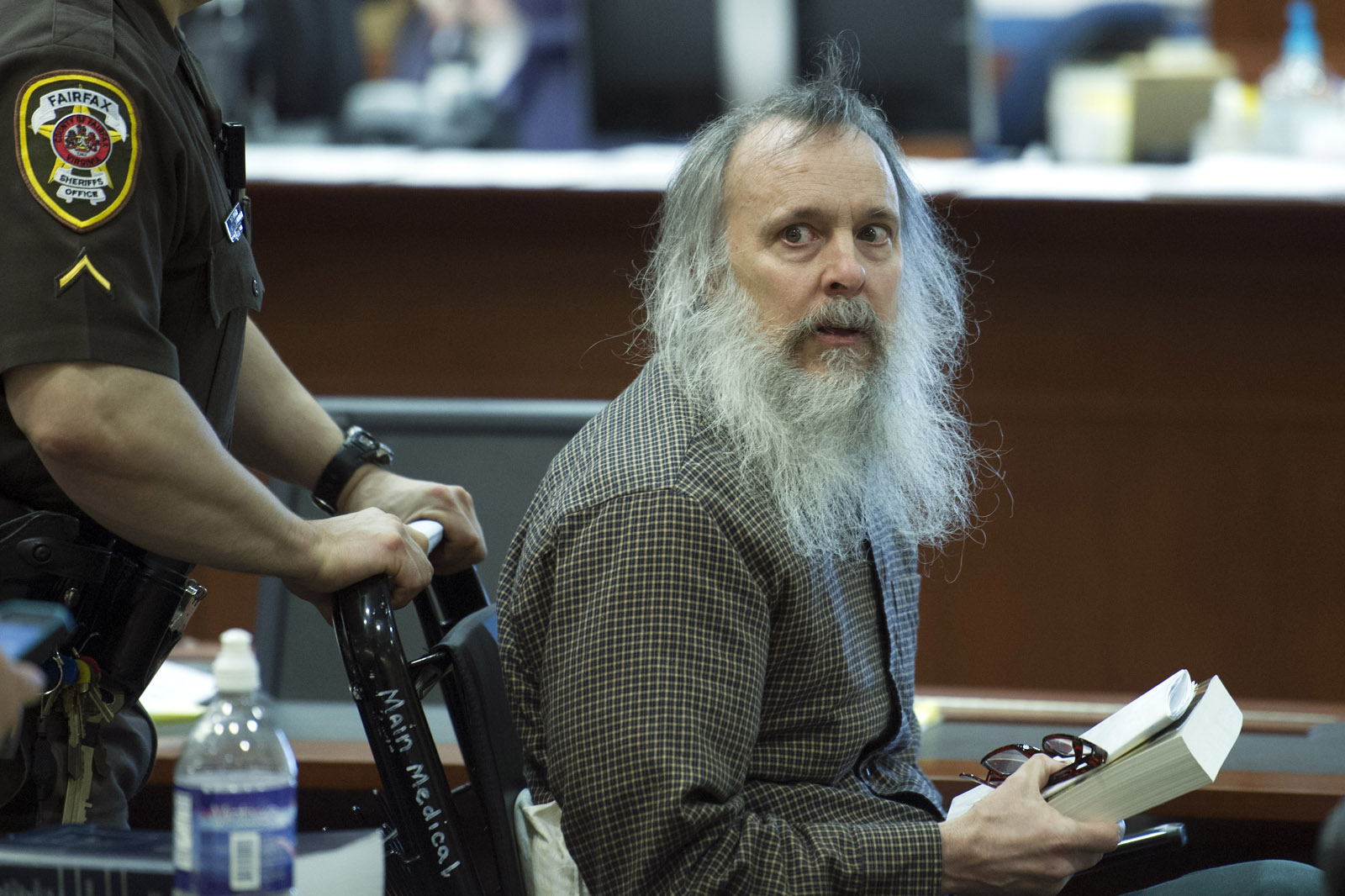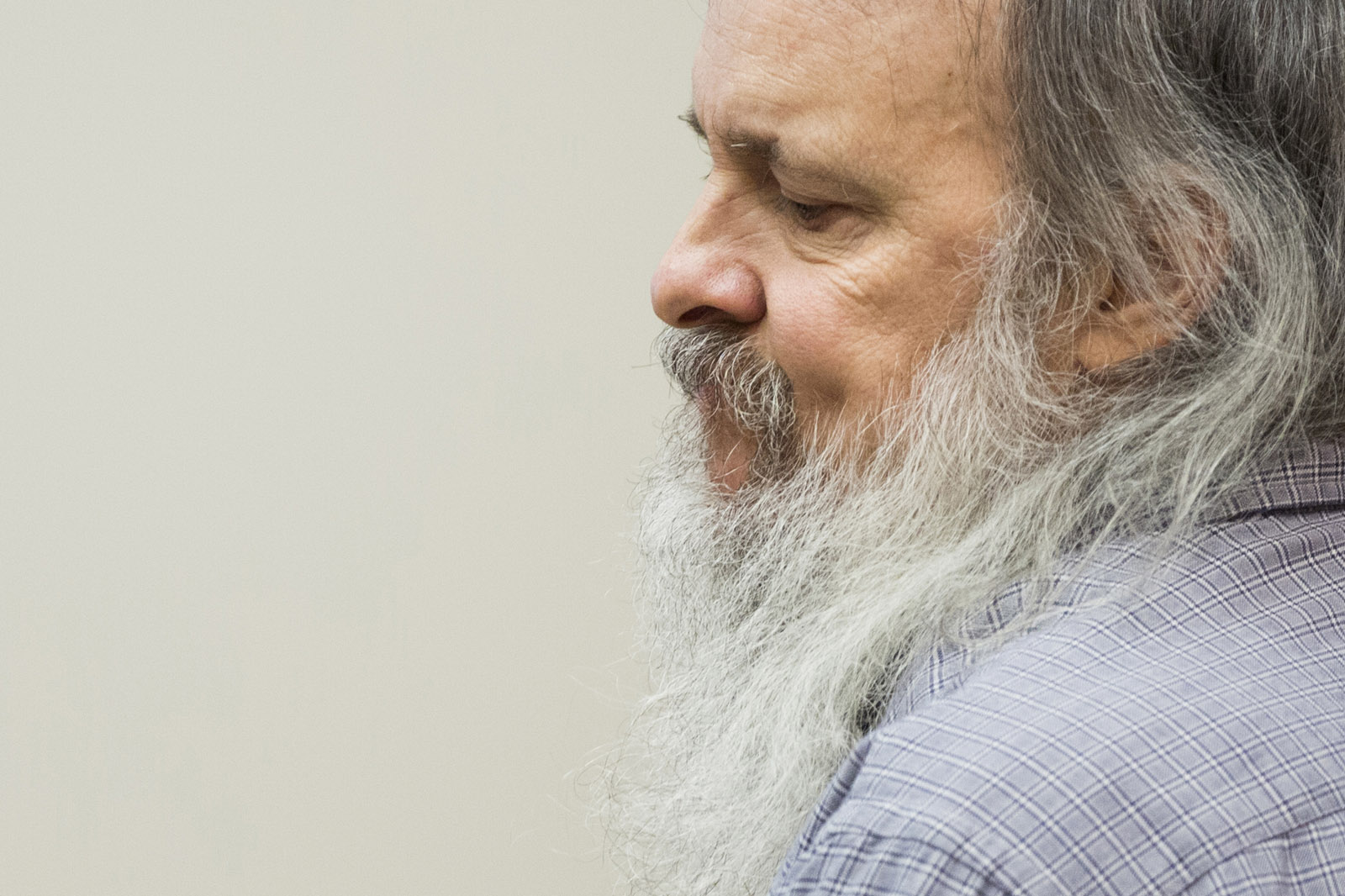WASHINGTON — The jury in Charles Severance’s capital murder trial is contemplating its verdict.
The 12-member Fairfax County jury is tasked with deciding whether prosecutors proved that Severance is guilty of killing three Alexandria residents between 2003 and 2014.
The one-time fringe candidate for Alexandria mayor is charged with capital murder in the shooting deaths of Ron Kirby and Ruthanne Lodato and first-degree murder in the shooting death of Nancy Dunning.
In all, Severance faces 10 counts including the murder charges, the weapons charges associated with each killing and the malicious wounding of the only witness to any of the shootings — Dorcas Franko, who cared for Lodato’s mother.
The jury must decide whether to convict Severance of capital murder for the killing of more than one person in the span of three years, as well as whether to convict him on the lesser charge of first-degree murder.
Some of the counts have multiple elements and if jurors have reasonable doubt, they must defer to the lower offense, according to the jury instructions.
If he’s convicted in all three murders, Severance faces a maximum of three life sentences in prison. Prosecutors did not seek the death penalty.
After nearly two weeks of testimony from 100 witnesses, both sides made their closing arguments on Wednesday — their last opportunity to convince the jury of the strengths of their cases.
Read WTOP’s coverage of the trial here.
Prosecutors asked jurors to consider two essential questions: Were Lodato, Kirby and Dunning killed by the same person? And is that person Charles Severance?
Prosecutors say all three crimes bore the same signature: All three Alexandrians were shot at their front doors at the same of time of day and there was no sign of a burglary or break-in. Prosecutors then turned to the .22-caliber bullets used in each killing, and revolver experts testified they could have been fired from a weapon Severance wrote about multiple times and even owned until 2004.
They also focused on the terror the seemingly random killings inflicted on the city, suggesting that Severance wanted to stir up fear based on his this statement from his writings: “Introduce murder into a safe and secure neighborhood. Do it again. And again. And again.”
Prosecutors stressed to the jury Severance’s desire for revenge against those he considered to be Alexandria’s entitled, elitist class, whom he despised and some of whom he held responsible for his losing custody of his son, Levite.
His defense team also quoted from Severance’s 2,100 pages of emails, website postings and handwritten notes pulled from journals, books and letters.
“Everyone is suspicious of the middle aged man with no place to call home,” said Megan Thomas, one of Severance’s defense attorneys.
Thomas told the jury her client is not the man who killed the music teacher, the regional transportation planner or realtor. She argued that witnesses who placed Severance near the homes of the victims actually saw someone else.
The defense admitted Severance is mentally ill (although he’s not using insanity as his defense) and claimed that explains his disjointed writings and even his strange behavior.
And Thomas emphasized that the often violent and repugnant writings from the defendant are not confessions.
“The writings don’t mean what they say they mean,” she said.
Instead, prosecutors are taking those writings out of context and trying to use them to fit their scenario: “There’s nothing in those writings that connects Severance to these crimes,” she said.
Thomas reminded the jury there’s no forensic evidence linking Severance to the murders.







